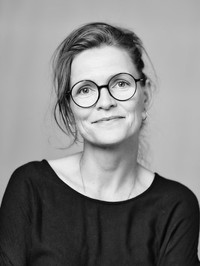Successful Study on Medical Waste Recycling
The healthcare sector is responsible for 6% of the total CO2 emission in Denmark. Therefore, there is great potential to develop innovative solutions for green transition of the healthcare sector, which add value for all stakeholders across the value chain.
As an example, blood collection tubes are one of health care's most commonly used products. Across the Region of Southern Denmark, approx. 7 million blood collection tubes are disposed every year. Used blood collection tubes are considered hazardous waste and they are currently disposed via incineration. This is both expensive and has a negative impact on the climate. The tubes are made of high quality raw materials, PET plastic which is highly suitable for recycling and generally has a lower carbon footprint than most other materials across its lifecycle (with multiple recycling circles). Industry partners are expecting a future with scarce resources and that it will become increasingly difficult to get access to raw materials for production of e.g. blood collection tubes. Bringing high quality raw materials back in the production cycle will also help address this foreseen challenge.
On 7th Global Recycling Day March 18 2024, the public-private partnership behind an innovative feasibility study on recycling blood collection tubes shared the results of the study. The study investigated whether used blood collection tubes could be cleaned and the PET material mechanically recycled, without compromising hygiene, safety and quality of the material. The results of the study demonstrate that it is feasible to decontaminate and process PET material from used blood collection tubes and successfully mold the material into a dummy article.
Additional research is needed to further refine some of the steps in the cleaning and recycling processes, including scale up considerations, ultimately enabling circular economy solutions.
The results of this innovative study show the potential of recycling single-use PET plastic materials, even from the hazardous waste fraction at hospital laboratories. This could help the Region of Southern Denmark and the healthcare sector in general move towards greener hospital operations.
The study was performed in a strong public-private collaboration with partners from across the value chain including:
- The Department of Clinical Biochemistry at Odense University Hospital
- Danish Technological Institute
- Becton Dickinson and Company
- GMAF Circular Medico/EcoFitt
- The Health Innovation Centre of Southern Denmark.
Contact

Caroline Strudwick
Specialkonsulent, udviklingskoordinator
Brugercentreret Innovation
40 24 75 87 Caroline.Strudwick@rsyd.dk Caroline Strudwick på LinkedIn

Stine Poulsgaard
Innovationskonsulent, designer MA
Brugercentreret Innovation
29 12 08 05 Stine.Poulsgaard@rsyd.dk
